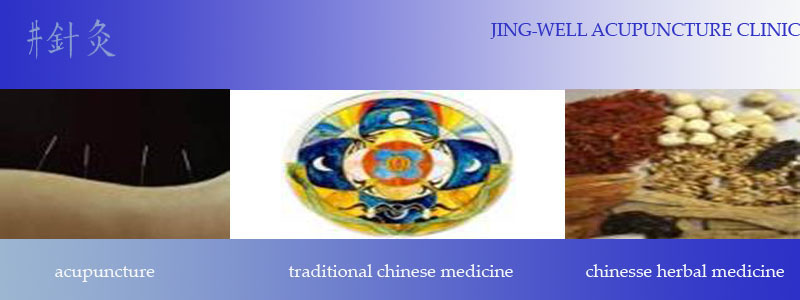About Jing-Well:
Mission Statement: Location/Contact Us:Health Services:
Practitioners:
Links:
Acupuncture treatments are approved and reimbursable with Bupa, VHI and many other insurance schemes
All Consultations are Strictly Confidential
Traditional Chinese Medicine
Traditional Chinese Medicine (TCM) is a system of primary health care that includes acupuncture, Chinese herbal medicine, remedial massage (tuina), exercise and breathing therapy (such as qigong), and diet and lifestyle advice.
In Ireland, the most popular forms of TCM health care are Acupuncture and Chinese Herbal Medicine. Traditional Chinese Medicine has an uninterrupted history of development in China and other parts of East Asia dating back thousands of years. The primary feature of modern TCM is the premise that good health relies on the restoration and maintenance of harmony, balance and order to the individual.
TCM takes a holistic approach to understanding normal function and disease processes and focuses as much on the prevention of illness as it does on the treatment. When healthy, an abundant supply of qi (pronounced chee) or "life energy" flows through the body's meridians (a network of invisible channels through the body). If the flow of qi in the meridians becomes blocked or there is an inadequate supply of qi, then the body fails to maintain harmony, balance and order, and disease or illness follows. This can result from stress, overwork, poor diet, disease pathogens, weather and environmental conditions, and other lifestyle factors and becomes evident to TCM practitioners through identifiable signs of body dysfunction. TCM practitioners look carefully for these signs of health and dysfunction, paying particular attention to not only the presenting condition, but also the medical history, general constitution, and the pulse and tongue.
Clinical assessment, diagnosis, and treatment principles are based on the theoretical frameworks of TCM which seeks to identify underlying symptom patterns that indicate how the body is or has become dysfunctional. Treatment is focused on the underlying condition as well as treating the presenting symptoms. Clinical decision-making and patient management strategies are also influenced by contemporary Western approaches to health care, including infection control practices and known interactions of herbal medicines with pharmaceuticals and other therapeutic substances.
TCM treatments work on the basis of individualised formulae for each patient.
For more details, refer to the sections on Acupuncture and Chinese Herbal Medicine.

